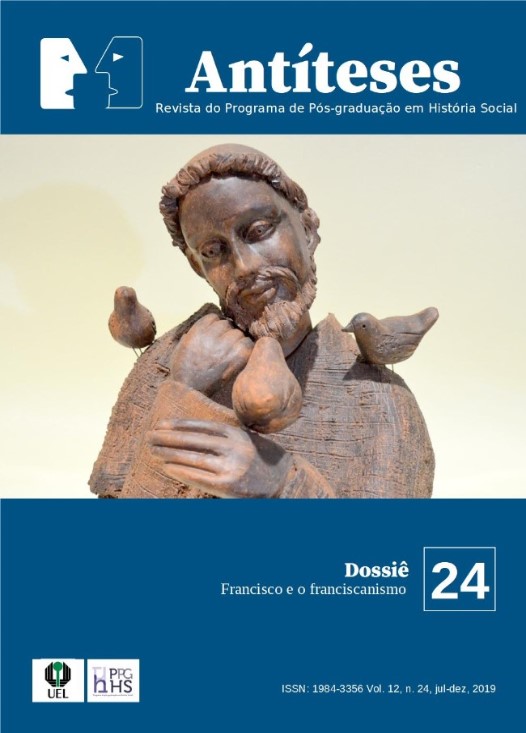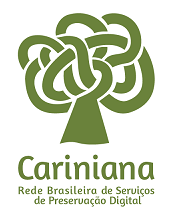Franciscanism, work and begging: the 13th century Franciscan lexicon
DOI:
https://doi.org/10.5433/1984-3356.2019v12n24p70Keywords:
Franciscan order, Poverty, Alms, Lexicon, Franciscan sourcesAbstract
The Franciscans were, since their origins, exempt from stability, which automatically led to the possibility of the friars returning to the state of the Gyróvago monks, guaranteeing their right - and also their vocation - to circulate in the saeculum. The Franciscan Order had been constituted, therefore, after the verbal authorization of Innocent III, in a begging community, to which the mechanism was available. From the institutionalization of the community, however, begging should progressively present itself as an expedient linked to a pre-existing institutional reality and, therefore, identified with norms and practices linked to tradition. For this reason, the lexicon of begging in the Franciscan Order tended to incorporate the concepts related to the work (labor) of the Regula monachorum de São Bento. We identified, in general, in the Franciscan written corpus, a presentation of begging as deeply associated with work.
Downloads
References
CELANO, Tommaso da. La Vita prima di S. Francesco d'Assisi. Roma: Tipografia Della Pace, 1880a. (Edição bilíngue latim/italiano).
CELANO, Tommaso da. La vita seconda ovvero appendice ala vita prima di S. Francesco d'Assisi. Roma: Tipografia Della Pace, 1880b. (Edição bilíngue latim/italiano).
DOMENICHELLI, Theophilo; CIVEZZA, Marcellino (org.). La leggenda di San Francesco scritta da tre suoi Compagni (Legenda trium sociorum). Roma: Sallustiana 1899. (Edição bilíngue)
ENGLEBERT, Omer. Vie de Saint François d'Assise. Paris: Albin Michel, 1982.
FRANCISCO DE ASSIS, Santo. Regula bullata. Directorio franciscano escritos de San Francisco de Asís en latín. 1223. Disponível em: http://franciscanos.org/esfa/ regb-a.html. Acesso em:11 set. 2019.
FRANCISCO DE ASSIS, Santo. Regula bullata. Directorio franciscano escritos de San Francisco de Asís en latín. 1223. Disponível em: http://franciscanos.org/esfa/ regb-a.html. Acesso em:11 set. 2019.
IOGNA-PRAT, Dominique. Cité de Dieu, cité des hommes: l'Église et l'architecture de la société. Paris: PUF, 2016.
IOGNA-PRAT, Dominique. La Maison Dieu: une histoire monumentale de l'Église au Moyen Âge. Paris: Seuil, 2006.
LE GOFF, Jacques. Vie de Saint François d'Assise. Paris: Gallimard, 1999.
Regula monachorum. Regula sancti Benedicti. Bayerische Staatsbibliothek (Biblioteca Regia Monachorum), Códice latino 19409.
SABATIER, Paul. Vita di San Francesco D'Assisi. Tradução de Giuseppe Zanichelli. Milano: Arnoldo Mondadori, 1994.
VAUCHEZ, André. La santità dei laici. In: VAUCHEZ, André. Esperienze religiose nel Medioevo. Tradução de Cristina Colotto. Roma: Viella, 2003. p. 15-26.
Downloads
Published
How to Cite
Issue
Section
License
Copyright (c) 2019 Antíteses

This work is licensed under a Creative Commons Attribution 4.0 International License.
The journal reserves the copyright on the contributions published, without material compensation for the author, and may make them available online in Open Access mode, through its own system or other databases; you can also make normative, orthographic and grammatical changes in the originals, in order to maintain the cultured standard of the language, with the final consent of the authors. The opinions expressed by the authors are their sole responsibility.










